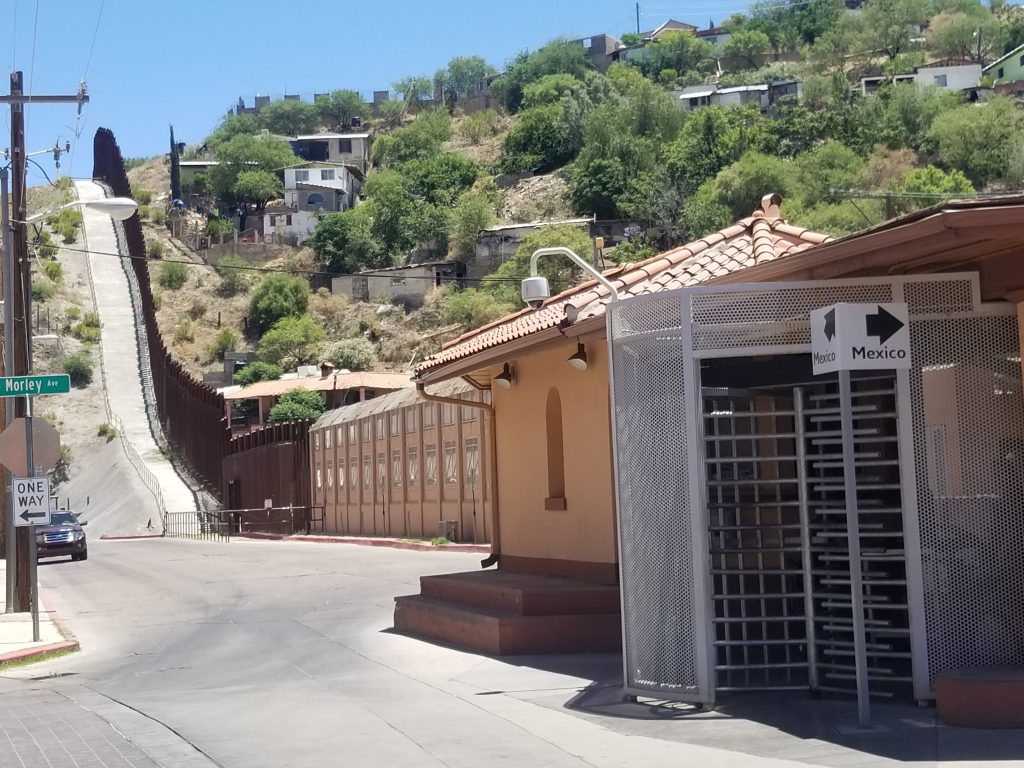
As an undocumented immigrant, I am highly familiar with the impacts of being undocumented. Making the decision to come to Tucson was exceedingly easy for me. It was almost a default decision, and my largest motive was the personal need to learn more about the crisis that has been ongoing in the Americas for centuries. The struggles of living undocumented in the United States has developed my passion for activism and fight for social change. Over the past four years I have been at the forefront of my community in advocating for myself and others. In these four years I have come to understand how slow the process of change can be, and living in North Carolina my family is well acquainted with animosity towards migrants. Despite the personal burnout that I had begun to experience in the last year of advocacy, it was essential for me to come to Tucson because there is so much that I must learn. Whatever occurs with immigration in the United States is tied to my identity just as millions of others and their families that are here. Coming to Tucson and the borderlands symbolizes coming to the origin of my “illegality”. In the words of the powerful Tucson immigrant advocate Isabel Garcia, it was about “coming to the wound”.
Pulling up to the border wall in Nogales and seeing the physical barrier for the first time was an interesting experience because the physical structure itself did not produce much emotion in me. It seemed arbitrary, wasteful, needless, and it was ironically dividing two sides of a community that belonged together. The thought that kept coming to mind is how much legislators and the media spoke about immigration and the border and I questioned if any of them had ever walked along those walls and seen it first hand. As we walked around I began to notice the people more, and near the port of entry I noticed how people would be communicating with each other from both sides. There were families who couldn’t cross waiting for something that one of their family members on the US side was bringing them. They would hand it over to someone who was heading back to Mexico and ask them for the favor of taking it back to their families. Throughout all of this, the guard towers loomed overhead and the patrol cars were visible all over the place. I considered what it would be like to live under such surveillance, and how no one who wasn’t from marginalized backgrounds would tolerate such a situation but they always gladly give their opinion about what should be happening with the border.
Almost instantly after beginning my work with the Coalición de Derechos Humanos, I understood I was in a very similar situation to my organizing in Durham. There are never enough hands to meet the endless needs that exist in our communities. It is a continuous uphill battle that one must persevere because our survival depends on it. I have begun with helping the organization catch up on tasks that have been accumulating due to low capacity in the office. I was asked to log voicemails that they had not been able to listen to, and so far I have gone through over 100 calls of family members calling in search of their family members. These phone calls continue coming due to a missing migrant hotline that Derechos Humanos used to run but was cancelled due to lack of funding. Nevertheless, people find the number and still call in desperation to find their family members. Listening to the tones of despair and the repeated calls has been one of the most gut wrenching experiences. There are two very specific instances that hit me hard. It was a young woman calling and she began stating that she needed help finding a missing person, but halfway through the voicemail her voice began to get choked up and I could hear her baby in the background. She finished by saying that it was her husband she was looking for and gave his country of birth and birthday in 1993. I tore my headphones off and walked out the office, that voicemail had been left 6 months ago. I felt anger, sadness, helplessness, and frustration that I could do nothing to help the suffering this young family had been going through. The next day while doing the same task, I ran into a 919 area code from Durham and it was an aunt looking for her nephew. I sat there and considered the distance I was from home and how desperate I would feel having someone lost so far away. My uncle’s story of crossing the border came to mind and his narration of the chase border patrol gave his group out of which he only escaped. I considered the pain my mother and grandmother would have suffered if he would have disappeared. I remembered my stepfather’s story of crossing the same Sonoran desert where so many immigrants were dying and going missing.
For the duration of this program, my mission is to learn as much as I can and pitch in my part to assist in whatever is needed, but the systematic border para-militarization and incarceration is not something that is slowing down. My work in Durham and anywhere else will only be fueled by the stories and experiences of those I have met here because in the midst of it all I see resistance, I see perseverance.

